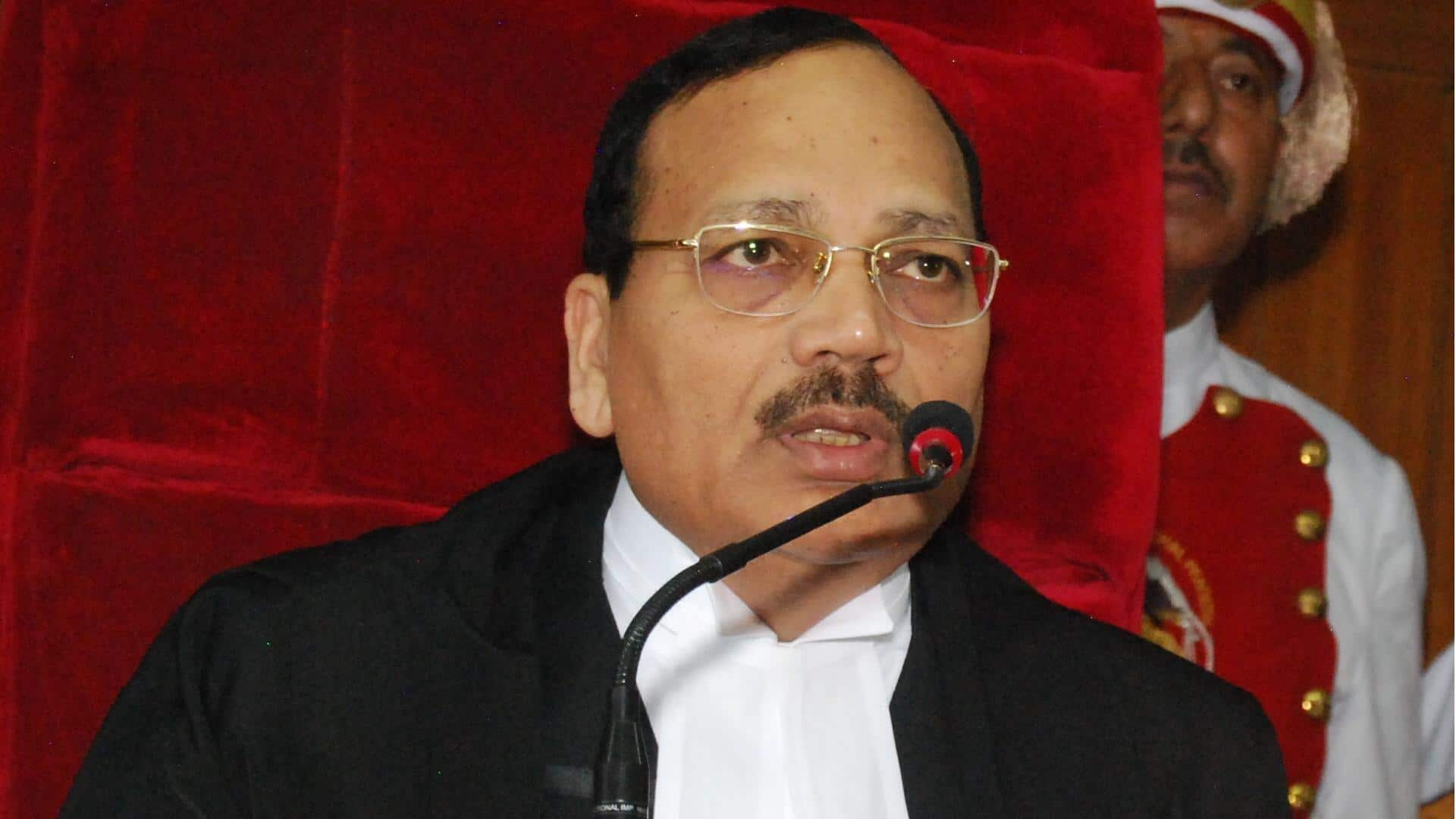
Justice Surya Kant sworn in as India's 53rd Chief Justice
What's the story
Justice Surya Kant was sworn in as the 53rd Chief Justice of India (CJI) on Monday. President Droupadi Murmu administered the oath at the Durbar Hall of the Rashtrapati Bhavan. He succeeds outgoing CJI Justice BR Gavai and will serve a tenure of nearly 15 months, retiring on February 9, 2027, when he turns 65.
Background
Justice Kant's early life and education
Born on February 10, 1962, in Hisar district of Haryana, Justice Kant hails from a middle-class family. He completed his LLB from Maharishi Dayanand University in 1984 and later earned a Master's degree in law from Kurukshetra University, where he stood "first class first." Before he was appointed CJI, he served as the Chief Justice of the Himachal Pradesh High Court.
Judicial impact
Landmark judgments and key interventions
Justice Kant has been part of several landmark verdicts and orders of national importance. He was on the bench that upheld the abrogation of Article 370 and kept the colonial-era sedition law in abeyance. He also nudged the Election Commission to disclose details about 65 lakh voters excluded from Bihar's draft electoral rolls during a review process.
Social equity
Gender justice and grassroots democracy
Justice Kant has also been a proponent of gender justice and grassroots democracy. He reinstated a woman sarpanch who was unlawfully removed from office, citing gender bias in the matter. Further, he directed that one-third of seats in bar associations should be reserved for women, including the Supreme Court Bar Association.
Legal scrutiny
National security and constitutional validity
Justice Kant was also part of the bench that probed the security breach during PM Narendra Modi's 2022 Punjab visit, observing that such questions required "a judicially trained mind." He upheld the One Rank-One Pension scheme for defense forces, calling it constitutionally valid. He continues to hear petitions from women officers seeking parity in permanent commission.
Judicial review
Overruling AMU judgment and Pegasus case involvement
Justice Kant was also part of the seven-judge bench that overruled the 1967 Aligarh Muslim University judgment. This decision opened up discussions on the institution's minority status. He was also involved in hearing the Pegasus spyware case, famously stating that "the state cannot get a free pass under the guise of national security."